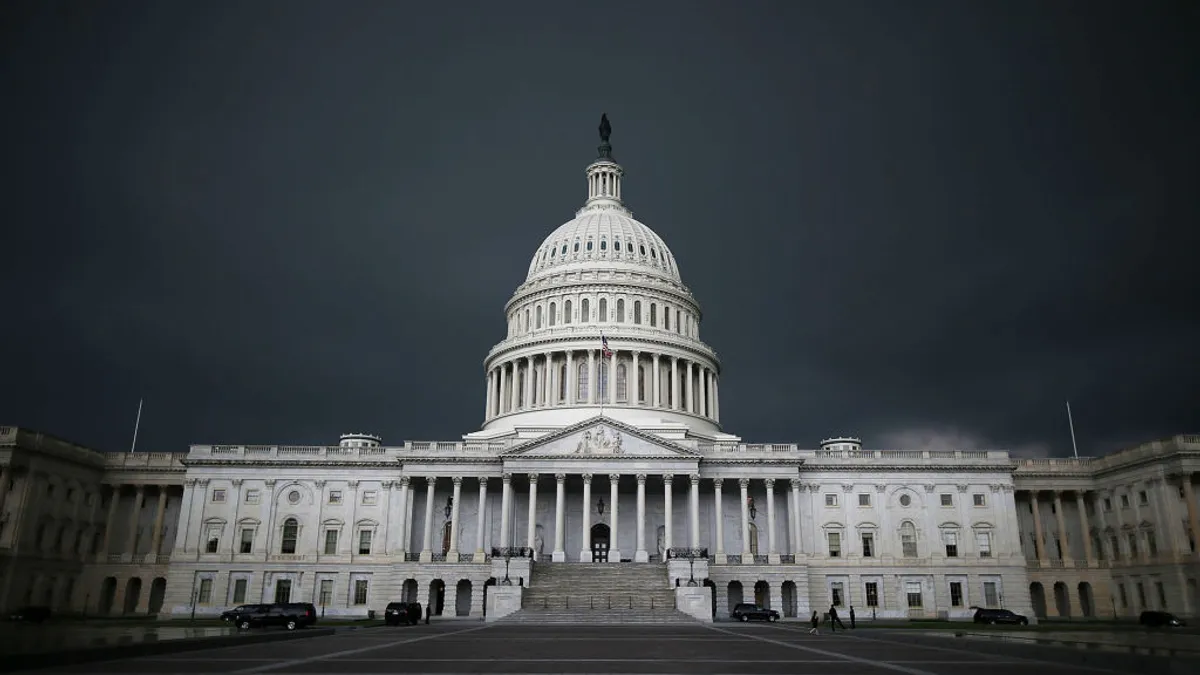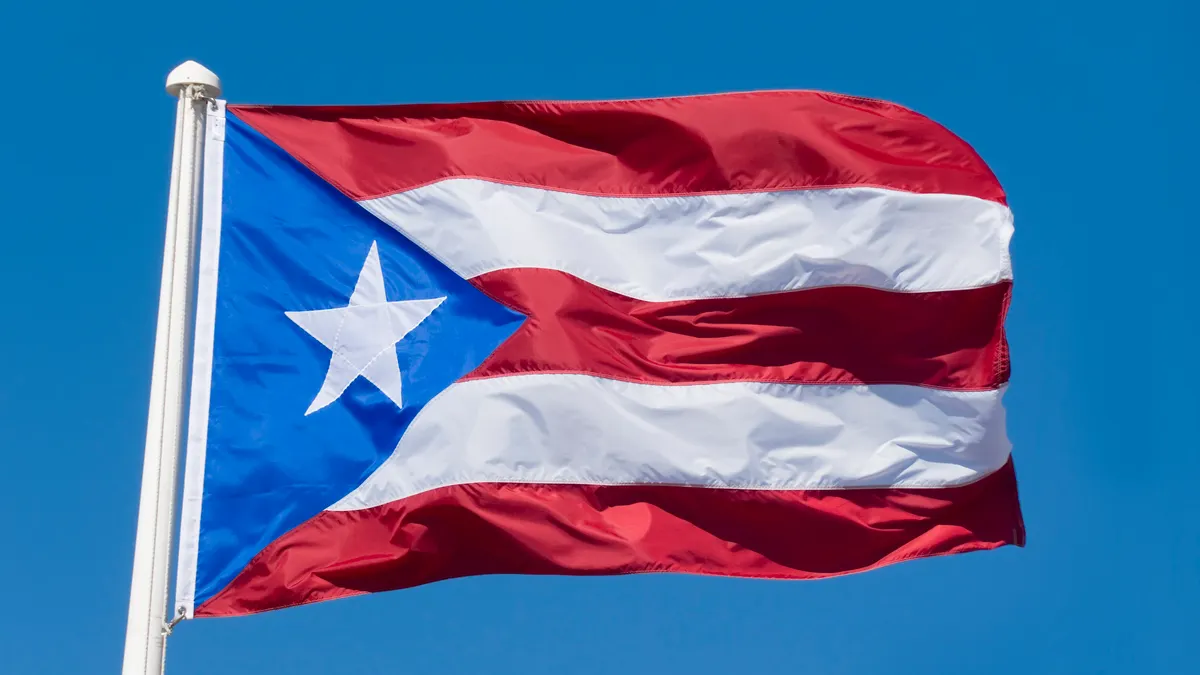Biotechs and pharmaceutical companies in the U.S. are facing pressure from proposed legislation that would bar them from working with some of the biggest overseas manufacturers — and newer modalities are likely facing the biggest impacts.
The Biosecure Act would prohibit U.S. companies from working with “a biotechnology company of concern” and extending any contracts, but specifically seeks to limit ties with Chinese biotechs. The proposed bill calls out a handful of companies, including Complete Genomics and WuXi AppTec, a significant biopharma partner for many U.S. drugmakers.
The bill comes after some Congress members began voicing concerns about Chinese access to U.S. health data and drug patents. The U.S. has come to depend on China over the last few decades for generic drug production — and the reliance has made some members of Congress uneasy because the Chinese government could exert control over the market, particularly for critical medicines like penicillin.
WuXi’s role in the Congressional row
WuXi AppTec, in particular, has come under the spotlight because the company and its affiliates, including WuXi Biologics, work with some of the biggest U.S. pharmas, producing ingredients for critical drugs and therapies. But the company has denied it is a security risk.
“We want to be clear and set the record straight: WuXi AppTec does not pose a national security risk to any country,” the company’s leaders stated in a public letter in February.
WuXi’s share price has been nearly halved since the Biosecure Act was introduced in the House at the end of January. The bill was also introduced in the Senate, where the Committee on Homeland Security and Governmental Affairs voted to move it to the floor in early March.
Currently, the bill remains in the House, though its key sponsor, Rep. Mike Gallagher (R-WI), said in March he was resigning early from his role and will not seek re-election. His last day in Congress was April 19.
Pharmas at risk
WuXi AppTec and WuXi Biologics are important partners for numerous biotechs and pharmas, developing up to an estimated 25% of drugs used in the U.S., The New York Times reported. As a result of the bill, some major U.S. pharmas and biotechs with connections to Chinese companies and WuXi Apptec may have to seek out new contractors.
The government’s crackdown on Chinese biotech partners is likely to impact cell and gene therapies the most, according to CRO Parexel.
“Often, these developers heavily depend on external partners due to the typical transition of early [cell and gene therapy] development from academia to startup biotech companies,” the company said in a blog post. “Limited funding and resources can often preclude the establishment of in-house labs and manufacturing facilities, leading to a reliance on [contract development and manufacturing organizations].”
Biopharma startup Iovance Biotherapeutics is one U.S. company currently tied up with WuXi AppTec after its subsidiary, WuXi Advanced Therapies, was approved by the FDA in February to begin the analytical testing and manufacturing of Amtagvi, a T cell immunotherapy to treat unresectable or metastatic melanoma. The cell therapy is “the first and only one-time, individualized T cell therapy to receive U.S. FDA approval for a solid tumor cancer,” the companies said in February.
“We do not anticipate any significant impact of the Biosecure Act on our ability to manufacture and meet demand for Amtagvi,” Iovance told PharmaVoice. “Our manufacturing facility, the Iovance Cell Therapy Center, is built to support several thousand patients annually. We are comfortable with our internal capabilities to supply anticipated near-term commercial and clinical demand.”
WuXi is also working with makers of in-demand anti-obesity and diabetes drugs, producing some of the base ingredients used in Eli Lilly’s tirzepatide products Zepbound and Mounjaro. Lilly already struggles meeting demand, with Zepbound currently in short supply — and the shortage isn’t expected to end anytime soon. CEO David Ricks met with China’s commerce minister Wang Wentao in late March and recommitted the company's investments and R&D efforts in the country. Lilly declined to comment.
Beyond the U.S., other drugmakers have similarly relied on WuXi as a contractor. In 2022, Merck KGaA invested $110 million over six years to expand an existing WuXi site to increase production.
BIO’s response
Despite the potential impact on the industry, the trade association BIO has come out in support of the Biosecure Act — after a tumultuous back-and-forth with the U.S. government.
Before supporting the legislation, former BIO CEO Rachel King, who served as interim chief of BIO for 14 months, argued against it in a letter sent to Senate Homeland Security and Governmental Affairs committee members.
The note prompted Rep. Gallagher to ask the Department of Justice on March 5 to investigate BIO’s advocacy for companies like WuXi AppTWuec. In her letter, “King obscures the nature of WuXi AppTec and downplays its national security risk profile,” Gallagher told Attorney General Merrick Garland.
Just a week later, BIO publicly supported the legislation and noted WuXi AppTec “proactively ended its membership” in the association.
“Our adversaries abroad have stated that they intend to become the biotechnology center of excellence in the world,” said John Crowley, who was appointed president and CEO of BIO at the end of 2023, in a mid-March statement. “America and our allies cannot let this happen. Securing and advancing our preeminence in biomanufacturing will be one key component of a multi-prong approach to secure and advance this strategic imperative in biotechnology.”
BIO did not respond to PharmaVoice’s request for comment, but a recent report from STAT News suggests long-term political considerations could have influenced BIO’s new stance on the bill.




















